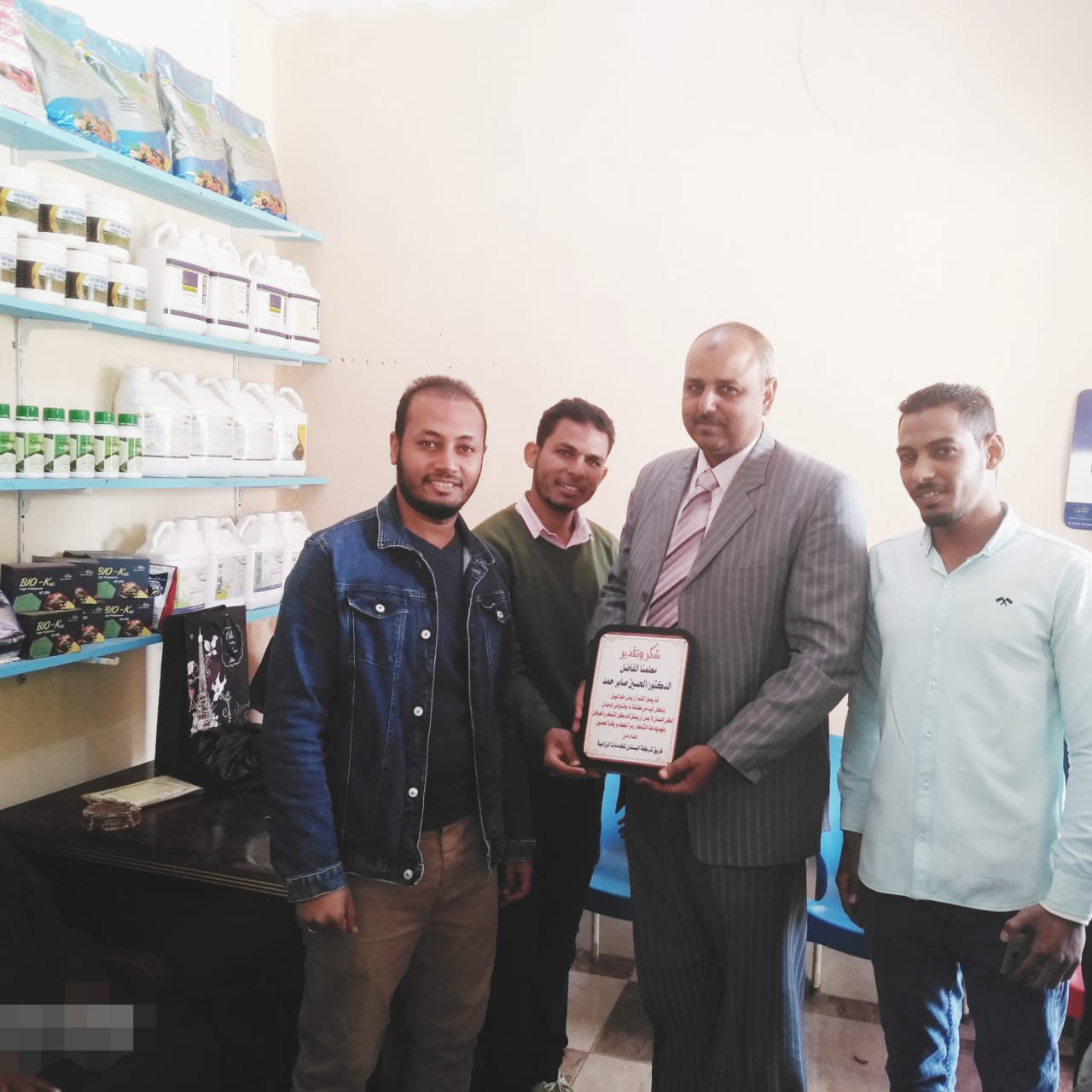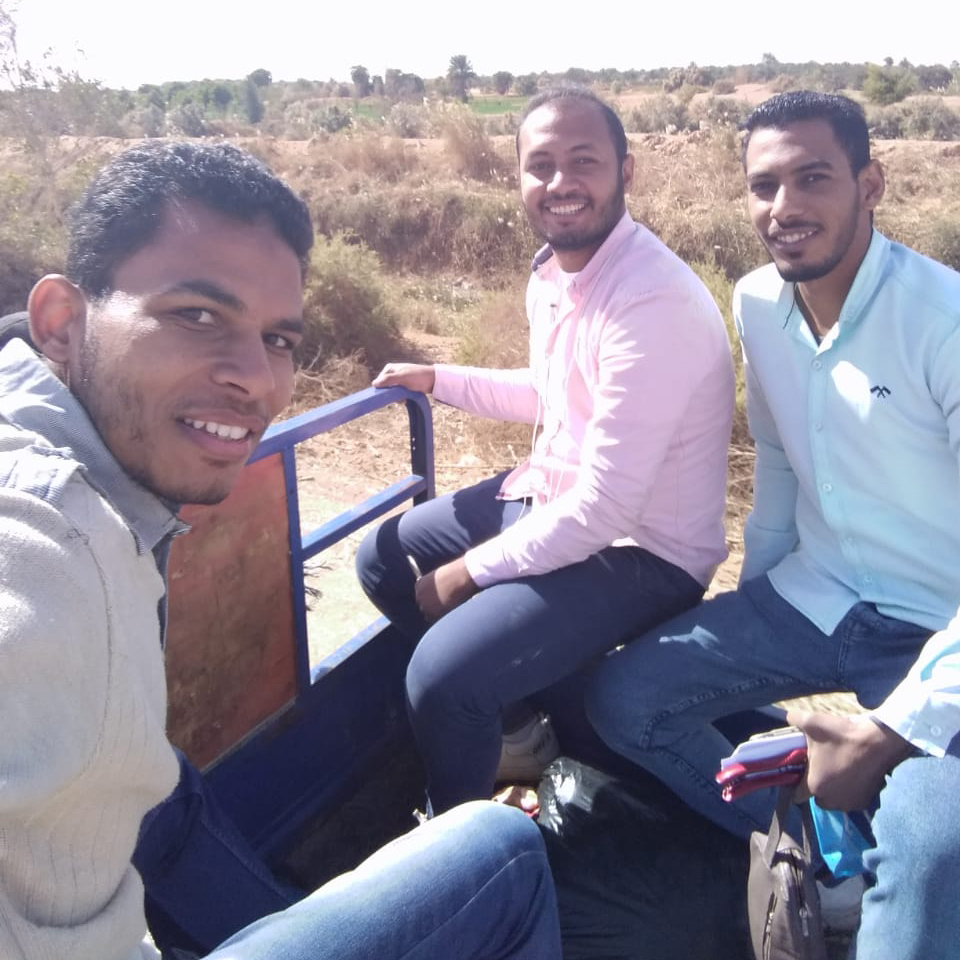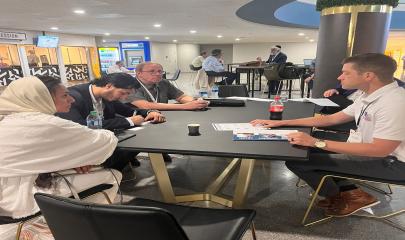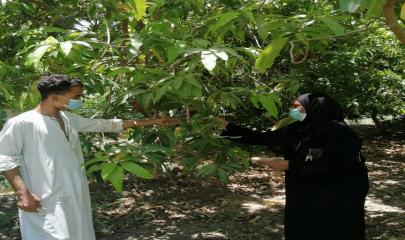USAID-funded Project Yields New Farm Businesses


After graduating from Aswan University’s Faculty of Agriculture, Mohamed Atta landed a hands-on internship with the Feed the Future Egypt Rural Agribusiness Strengthening Project. The internship gave him extensive practical experience and the chance to apply his theoretical knowledge on the ground. An added bonus: the chance to learn from some of the best technical experts in the field.
“It was a great opportunity to learn and develop on both the personal and professional levels,” said Mohamed, who is currently pursuing a master’s degree in date palm pollination from Aswan University. “I gained invaluable knowledge and hands-on practical experience by accompanying the Project’s agricultural experts during their field visits, working with smallholder farmers, and understanding their needs and challenges.”
Mohamed and his fellow graduates in the internship program received a comprehensive capacity building program. It included soft skills such as negotiation, communication, and problem solving in addition to technical skills including production (integrated pest management, water management, etc.), food safety, and nutrition. During the internship program, Mohamed met two other interns - Islam Ahmed and Mohamed Desouky - and they decided to partner together to launch their own small business. In March 2020, the three established Al-Bustan for Agricultural Services, a company that provides agricultural services in Edfu, Aswan.
The company offers certified pesticides and fertilizers, soil and water analysis, and agricultural extension services to farmers in the area. Al-Bustan’s extension services start from the land preparation phase through the different production stages--including planting and pest management--until post-harvest to ensure optimum quality and high productivity. The partners conduct field visits to farms upon request and recommend best agricultural practices and the scheduling of the fertilizers and pesticides.


“Our time with the Project has benefitted us massively from a technical standpoint,” Mohamed said. He notes that he and his partners learned what type of input supplies are appropriate for each crop and how to recommend the appropriate pesticide to control different types of infections. “That is not something easy to learn anywhere else,” said Mohamed.
Now the partners are proceeding slowly and methodically. “Our greatest achievement so far has been our ability to implement a new culture for a number of farmers and convince them of the benefits of using certified products to reap effective results,” Mohamed said. The company now has its own Facebook page (link) and is trusted by more than 50 individual farmers who regularly use their products and services. The three partners are expanding their business and widening its scope to offer support to even more farmers and benefit their community.
All three are proud to be financially independent and continue work on their masters’ degrees. Their own incomes have increased by up to 20 percent, and they have started saving money to purchase additional input supplies. Their long-term plan is to open a series of integrated farms in the area that will include various crops, cattle, and poultry. They want to create a model of agricultural best practices that other farmers could easily replicate.
Read More
Market System & Value Chain Strengthening in the Middle East & North Africa

Interview with Arun Asok: Mobilizing Private Capital for SDGs
Discusses Abt’s work mobilizing private capital to advance SDGs, critical challenges and opportunities in private capital mobilization & related webinar series.

Opportunities to Unlock Climate Finance in Emerging Markets in a High-Interest-Rate World
In a report ahead of the 27th UN COP, Abt outlines strategic opportunities for climate financiers in emerging markets amid rising interest rates.

Egyptian Agribusiness Study Tour Participants Visit United States
The Feed the Future Egypt Rural Agribusiness Strengthening Project, a USAID-funded activity, organized a study tour to the U.S. for Egyptian food processors.

USAID Empowers First Woman “Reporter Farmer”
Bat’a Ibrahim is shares what she’s learned from the Feed the Future Egypt Rural Agribusiness Strengthening Project, a USAID-funded project implemented by Abt.
